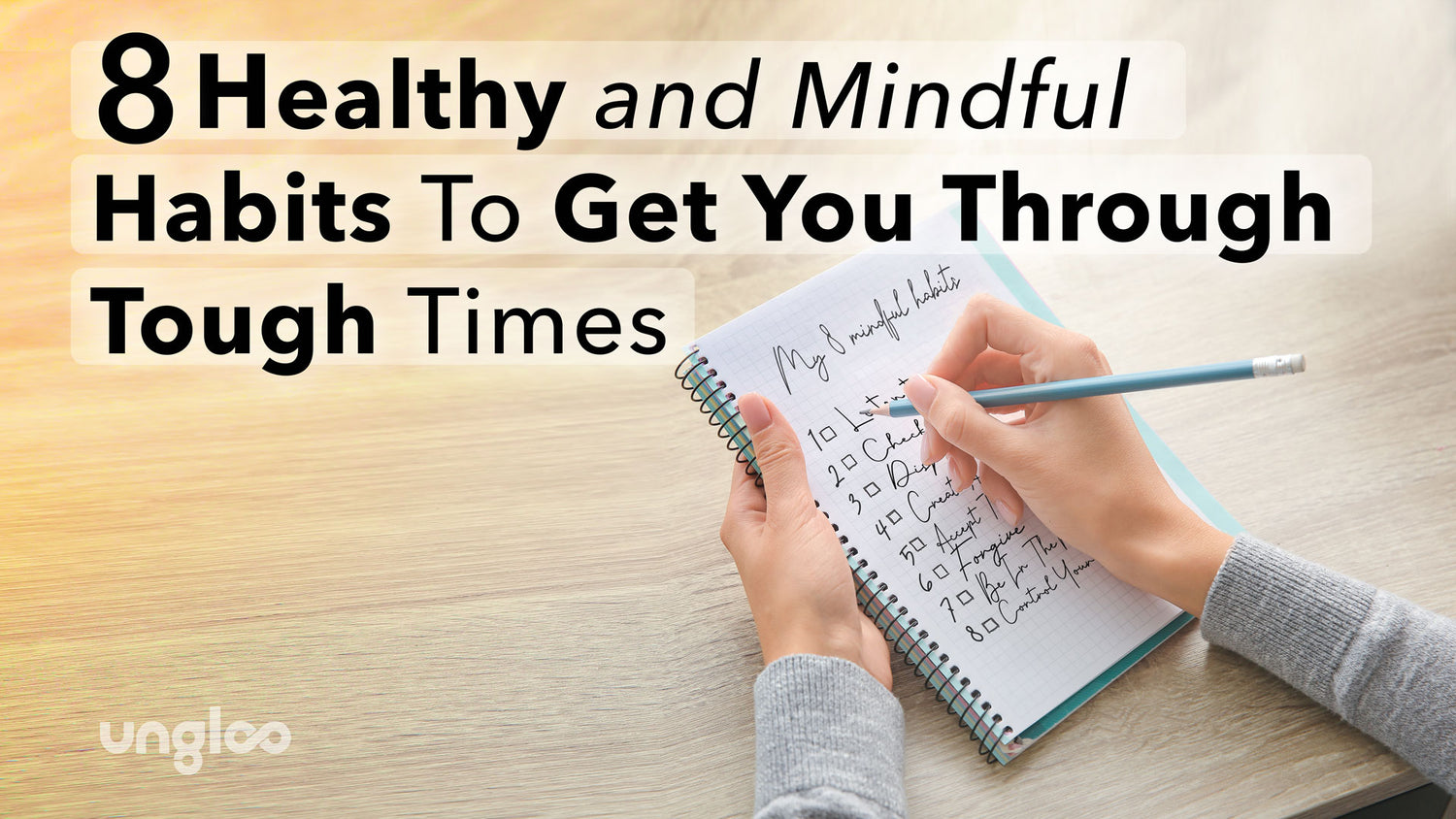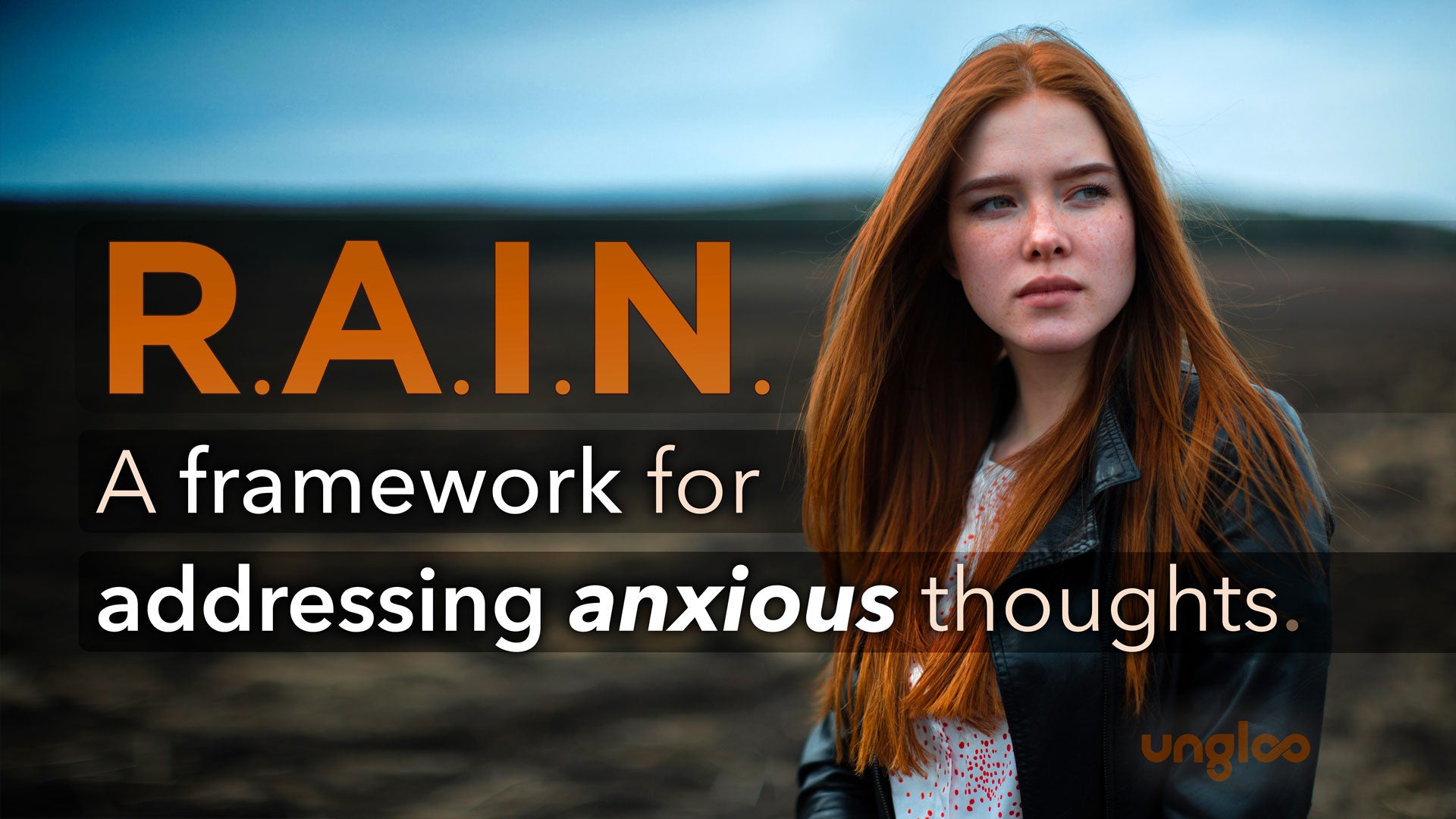‘Losing will not always amount to a loss. Sometimes you have to lose those toxic relationships and bad habits to create a space for better things.’ - Gift Gugu Mona
We all have old habits we fall back on when times get tough. But how many of these habits are healthy? Often, the habits we rely on actually impact our mental well-being and make it even harder to get through difficult situations. This article will help you cultivate eight healthy and mindful habits to keep you going even when life is hard.
1. Listen To Yourself First
Before seeking outside advice, listen to your thoughts and feelings. How are you feeling in this situation? What can you do to improve it? We often act on the first thought that enters our head, whether that means panicking, drinking more coffee or seeking what we think is an expert opinion.
Slow down, breathe, and really listen to yourself. Trust your instincts and what will help you move forward. If you feel overwhelmed by a situation, acknowledge that and think of ways to get yourself some distance for a few moments. If you’ve encountered similar situations, consider what helped before and whether it would work again.
Take this step before seeking help from others; other people’s ideas, however well-intentioned, can crowd our judgment and complicate the situation.
2. Build In Time To Check In Each Day
You might not be used to listening to yourself, so need to develop this skill for long-lasting healthy habits. Build in time to sit quietly and check in with yourself. Mindfulness helps to improve decision-making, so consider investing in mindfulness practices to help you listen to your inner voice.
Mindfulness is the process of being fully engaged in the present moment. It might mean that you take the time to enjoy your food or focus exclusively on something you are doing. Mindfulness means listening to yourself without judgment. Welcome each thought that comes into your head without trying to define it, and see what your inner self is telling you.
3. Displace Your Inner Critic
Our inner critic can often find its voice during tough times. It might like to tell you about what you have done wrong and what a terrible person it makes you.
While sometimes our inner critic can be helpful, it’s not especially useful when you’re already struggling. Question your inner critic and rehearse positive responses to its voice: how did you behave well in this situation? What are you good at doing?
Displacing your inner critic can help you respond more positively to situations of all kinds and is a helpful habit that will build up your resilience during tough times.
4. Create A Space For Your Emotions
Mindfulness can be practiced in any location, but creating a physical mindfulness space can help you feel centered and safe even during the toughest times. You might have a designated area in your home where you place a meditation bench to cultivate the habit of visiting that location when you want to practice mindfulness.
If the source of your stress is the home environment, you may want to consider a portable meditation kit that you can take outdoors and connect with nature. Choosing a physical mindfulness space or investing in a mindfulness kit helps to build the habit of going to your designated spot or setting up a specific routine.
5. Accept The Situation
Radical acceptance is accepting you, the world around you, and others for who and what they are. Research shows that practicing acceptance can help with the practice of emotional regulation and responses to stress. Accepting a situation can help you think practically about solutions without being influenced by feelings of overwhelm or anger. Acceptance can also be built up over time by mindfulness, as it helps you build up the practice of listening to your thoughts impartially.
6. Forgive
Forgiveness can help you accept your situation without feeling angry towards a particular person. It can also help you be kinder to yourself if you practice self-forgiveness. Forgiving others doesn’t mean denying the emotional harm they caused you, but it means releasing angry feelings towards that person. Forgiving people is also kinder to you as it helps you release the toxic anger and pain you might otherwise build up.
How do you forgive someone? Acknowledge how you feel about the impact their actions had on you. Process those emotions mindfully and release them from your body and thoughts. You might want to forgive someone verbally, but if that isn’t possible, simply forgive them internally and move on.
7. Be In The Moment
When time gets hard, sometimes all we can do is exist from moment to moment. Fortunately, this is also a powerful habit for overcoming tough times. Avoid getting lost in fear of what will happen in the future or worrying about the past.
Concentrate on the present moment and your daily activities as much as possible rather than getting lost in thought. If you find it hard to be in the moment, focus on some physical activities you can enjoy. That might mean going for a walk or investing in an activity that can occupy your hands (like crocheting).
8. Control Your Choices
When the situation you’re in is out of your control, often all you can do is choose how you react. Make positive and productive choices that can help you navigate a path out of your difficult situation. The more you push towards a positive outcome, the more empowered and confident you will feel making those decisions in future. It will take you from feeling like life is just happening to you being an active participant in it.
You Can Get Through
These eight healthy habits will help you create actionable steps to fall back on when times get tough. When you listen to your instincts and navigate towards positive choices, you are more likely to be able to forgive, be present at that moment, and accept your situation.
Remember that these practices take time to cultivate into healthy habits. Mindfulness is an excellent practice for impartially processing your emotions. Consider creating a physical or mental mindfulness space or routine in your home to embark on healthy habits today. We believe in you; you can get through it!



